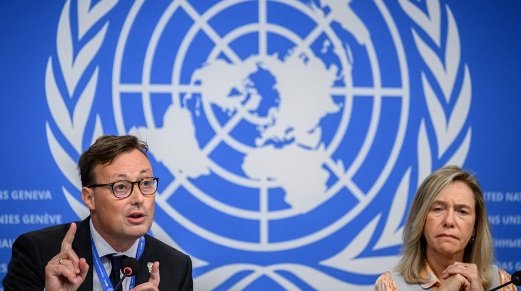
On October 7, 2024, a United Nations report highlighted an alarming shift in the world’s water cycle, driven by climate change. According to the report, global rivers have experienced their driest conditions in over 30 years, and glaciers have undergone the largest mass loss in five decades. The findings raise urgent concerns about the increasingly erratic nature of the water cycle and the far-reaching effects on ecosystems, human populations, and economies.
How Climate Change Disrupts the Water Cycle
The UN’s World Meteorological Organization (WMO) describes water as an early indicator of climate change’s impacts, comparing it to a “canary in the coal mine.” Rising global temperatures have caused the water cycle to become increasingly unpredictable, leading to both excessive rainfall and prolonged droughts. These irregular weather patterns are wreaking havoc on agriculture, water supplies, and natural habitats, threatening food security and economic stability.
As the atmosphere warms, it can hold more moisture, resulting in heavier rainfall and more frequent flooding. Simultaneously, higher temperatures accelerate evaporation, exacerbating drought conditions. This dual threat is making weather events more extreme and less predictable, putting millions of lives at risk.
Extreme Weather Events Escalate
Over the past year, extreme weather has intensified. The planet has experienced severe droughts, widespread flooding, and unprecedented glacier melting. Natural climate phenomena like El Niño and La Niña have traditionally influenced global weather patterns, but human-caused climate change has amplified their severity. This leads to more frequent and destructive weather events that strain resources and endanger communities.
Glacier Melting and Freshwater Shortages
The report underscores the growing concern over glacier melting, which is accelerating at an alarming rate. Between September 2022 and August 2023, glaciers lost over 600 gigatonnes of water—the most in the last 50 years. This mass loss is contributing to water shortages in regions dependent on glaciers for freshwater.
Currently, around 3.6 billion people—nearly half the global population—lack sufficient access to freshwater for at least one month per year. This number could rise to 5 billion by 2050 if current trends continue. More than half of the world’s river basins have seen below-average water levels for three consecutive years, further compounding the issue.
The Path Forward: Urgent Action Required
The UN stresses the need for immediate action to mitigate the effects of this growing water crisis. Key measures include improved monitoring of freshwater resources and the development of early warning systems to protect people and wildlife from both water shortages and floods.
Most importantly, the report calls for a significant reduction in greenhouse gas emissions to address the root cause of climate change. Without decisive action, the unpredictable water cycle will continue to threaten global water security, leaving millions more vulnerable to the devastating impacts of floods, droughts, and shrinking water supplies.
The UN’s findings serve as a stark reminder of the need for global cooperation in combating climate change and safeguarding the planet’s most vital resource—water.

